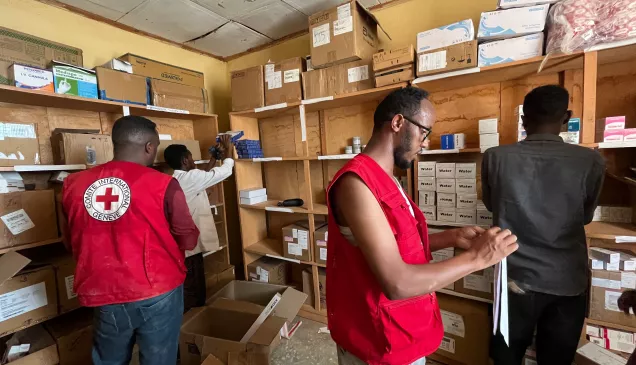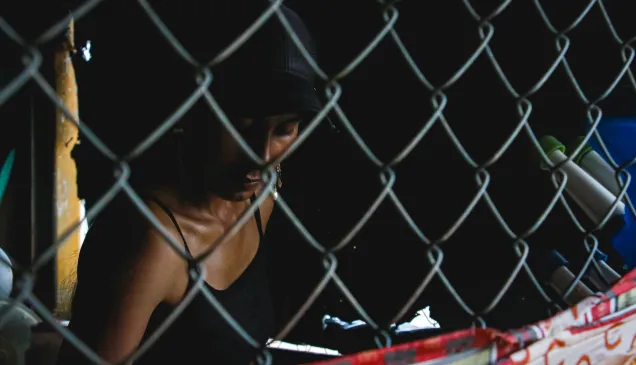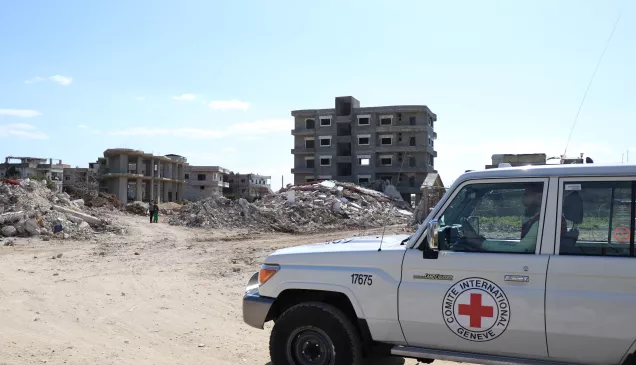Bangladesh: Cash grants help 6,000 families in Chattogram Hill Tracts
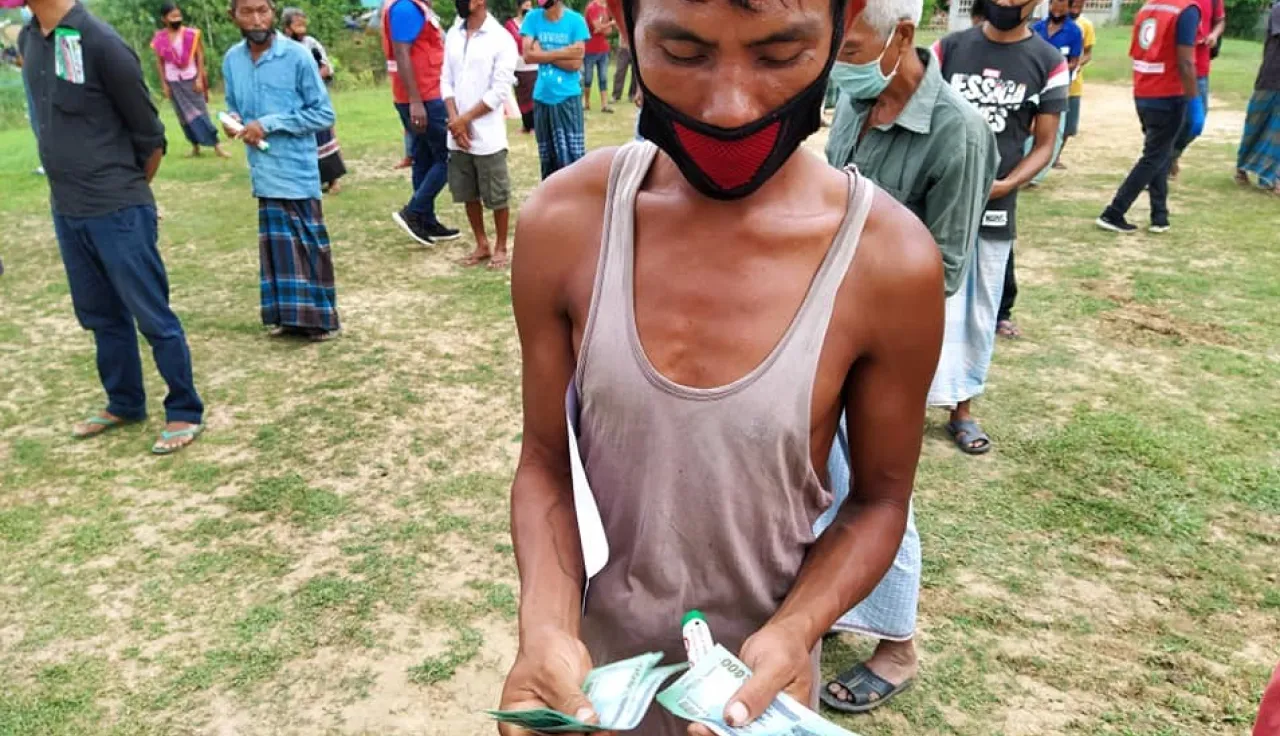
Not too long ago, Ravai Marma found herself in a constant state of worry about her crumbling house and its frail roof. She feared the gusty winds of monsoon, unsure if the structure would be able to withstand their impact. But that was before she received the cash assistance from the International Committee of the Red Cross (ICRC) and the Bangladesh Red Crescent Society (BDRCS).
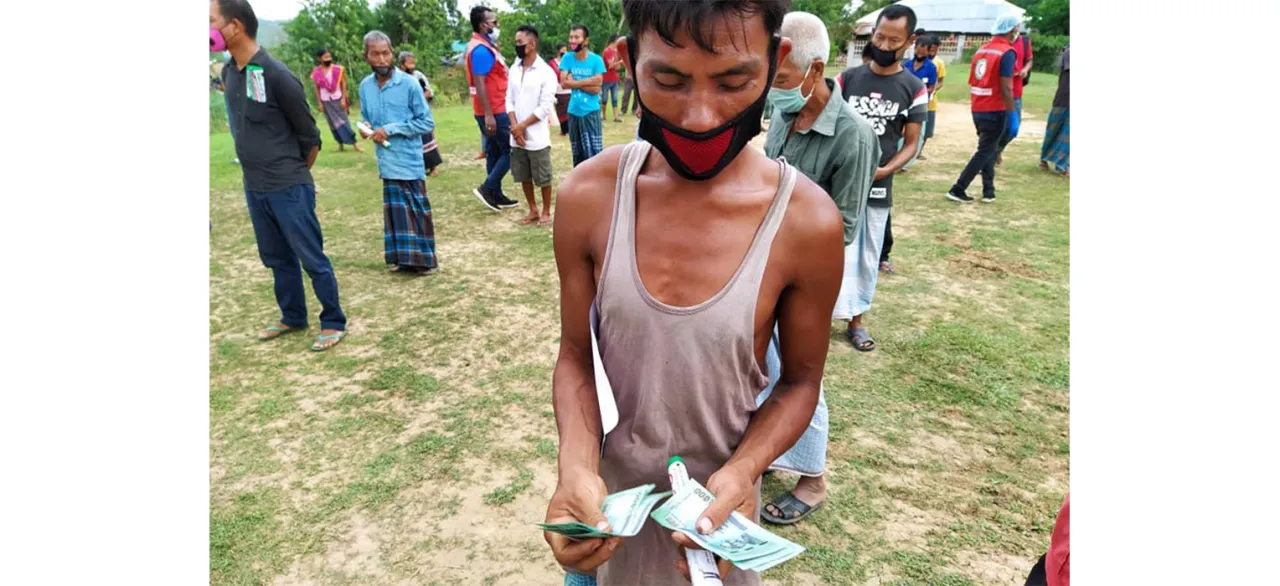
Ravai Marma is from the hard-to-access Chattogram Hill Tracts (CHT), where communities have been facing an acute food shortage due to the unrelenting COVID-19 pandemic. In dire need of help, close to 6,000 families in CHT were recently given cash aid to cope with the ever-changing situation.
Thanks to the help, Ravai Marma is soon going to repair the roof of the thatched house. Her family, hailing from Khagrachari district, is one of the households that were given the unconditional cash grant to tide over the challenges brought upon by the government-imposed lockdown due to the pandemic.
The ICRC, in collaboration with the BDRCS, supported 85 communities as well as people living in urban areas of the three CHT districts affected by coronavirus, benefiting over 30,000 people from 6,000 families.
Explaining the objective of the cash support programme, MA Halim, the community development director of BDRCS, said, "Through the local BDRCS units, we reached families that were directly or indirectly affected by the pandemic to help them meet their basic and food needs. The families included households dependant on daily wages, those with no access to income, women-headed households and people with disabilities."
This one-time emergency aid would have a positive impact on the families' dietary intake and help them maintain adequate food consumption and living conditions.
Elaborating upon the continued support in CHT, Laura Diskin, a delegate with ICRC Bangladesh, said, "We have been supporting both Bengali and ethnic minority communities since 2014 in partnership with the BDRCS. In times of COVID-19, our diverse humanitarian support like cash assistance, food distribution, support to district prison authorities and preventive messaging on COVID-19 is catered to help the communities as well as complement government efforts to cope with the situation."
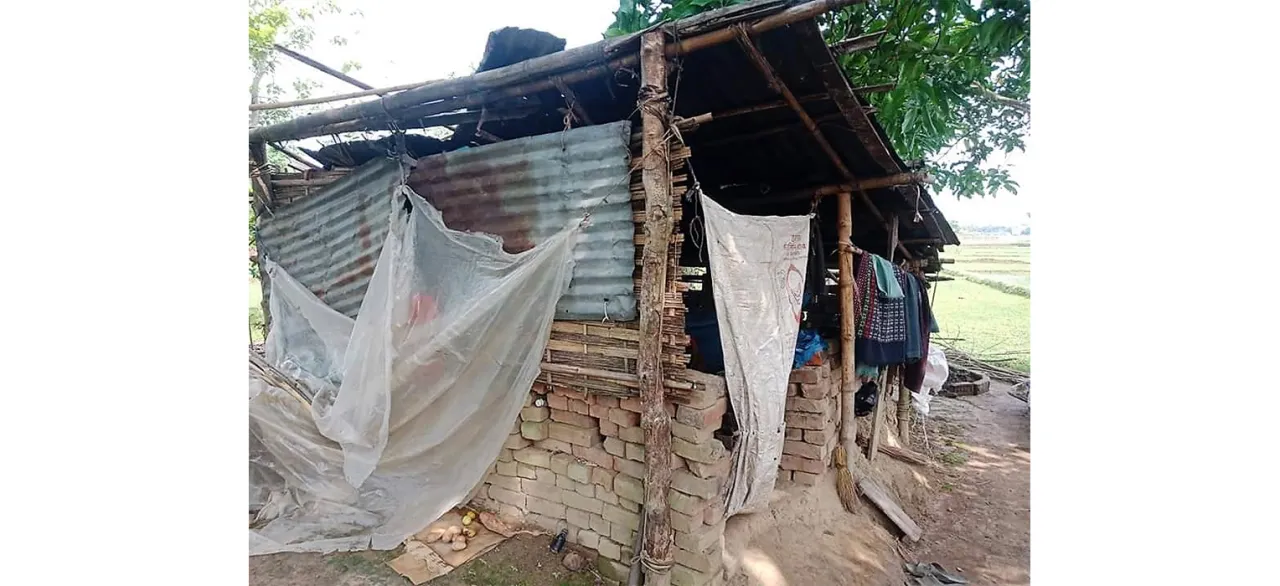
Rangamati, Bandarban and Khagrachari district prisons have received hygiene items to tackle the spread of coronavirus among the prison population, including detainees and prison staff. BDRCS volunteers continue to assist the district detention authority in the implementation of infection prevention and control measures.
Earlier, food parcels were distributed among 2,800 families in the three CHT districts, covering seven-day food ration. The distribution was carried out by the BDRCS and financially supported by the ICRC.
Audio messages on COVID-19 prevention along with leaflets on the same continue to be used in CHT to spread the message. A two-way communication system through hotline and feedback mail is also being implemented in coordination with the BDRCS. Besides, the ICRC continues to conduct information-sharing sessions on international humanitarian law, international human rights law, as well as use of force and firearms for the law enforcement agencies in Bangladesh.
Since 2014, the ICRC, in partnership with the BDRCS, has been implementing community-based livelihood support programmes to enhance household food production and increase income. Since 2016, we have been supporting the communities by providing them with access to safe drinking water, sanitary conditions and hygiene programmes in an integrated manner.

